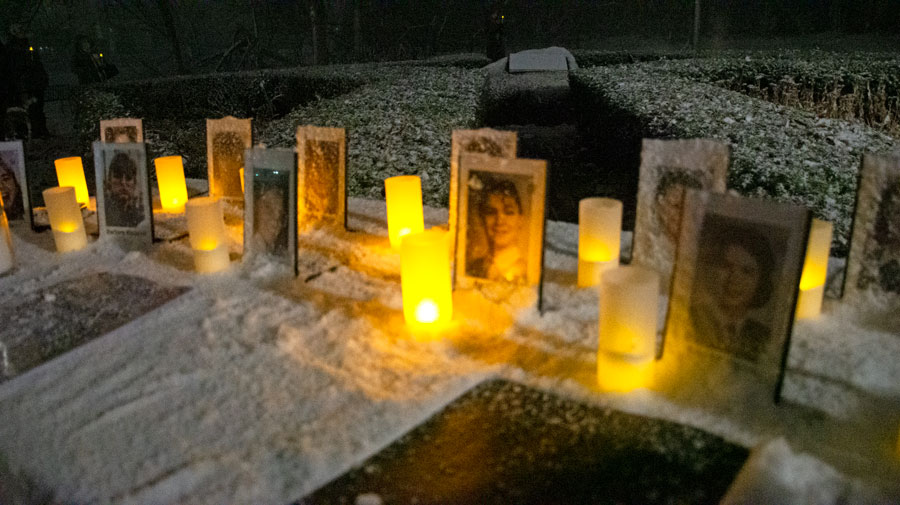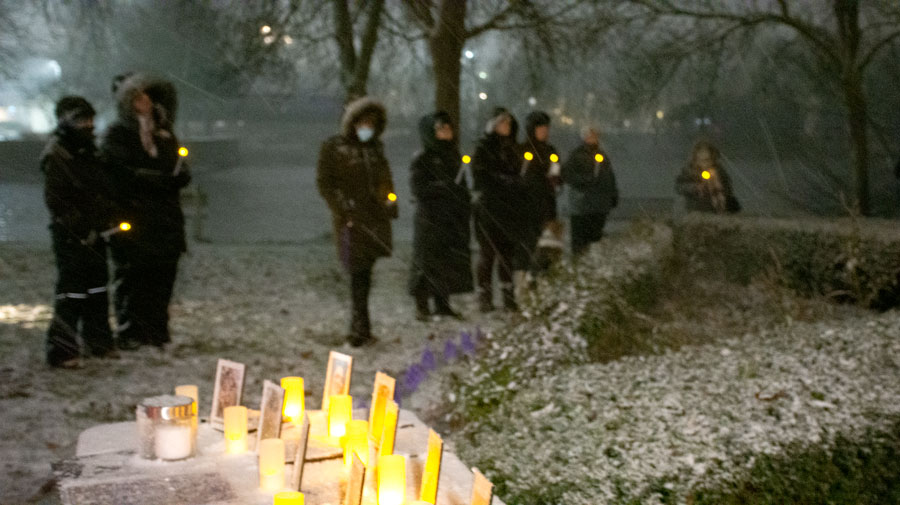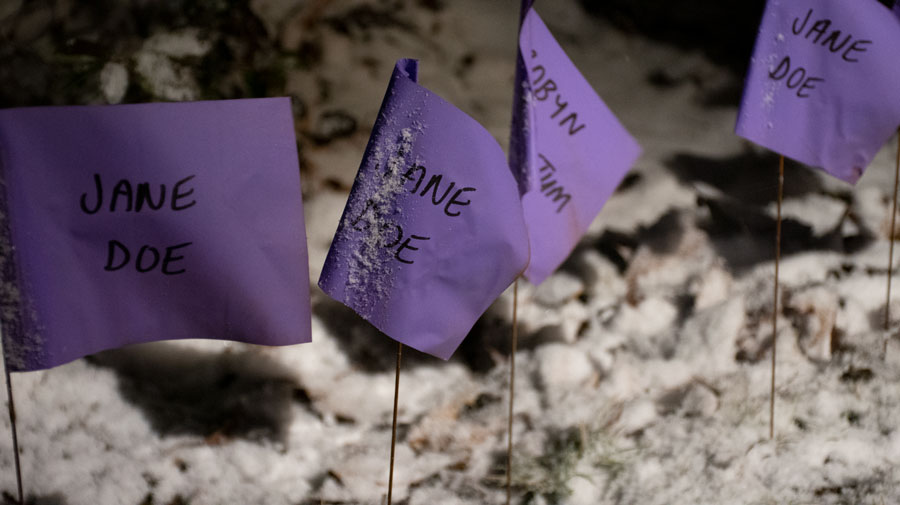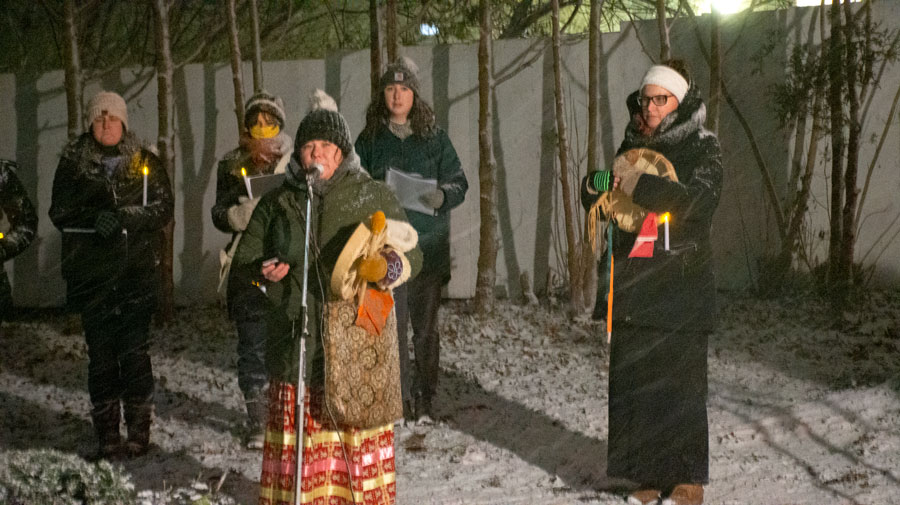GUELPH – Always a moving ceremony, Guelph-Wellington Women in Crisis (WIC) held a vigil at Marianne’s Park in Guelph on Dec. 6 to mark the National Day of Remembrance and Action on Violence Against Women.
It was fitting that the wind was blustery, and snow was piling up during the hour-long service. The 50 or so people who attended were cold and uncomfortable. It’s an uncomfortable topic.
This was the 32nd anniversary of the massacre of 14 female engineering students at Montreal’s École Polytechnique.
The gunman was not named, but organizers read out the names of the 14 victims – young, vibrant, talented, smart women whose dreams were snatched from them along with their lives during the anti-feminist rampage.

Remembering – Photos of the 14 women who were gunned down in 1989 in what has become known as the Montreal Masssacre, were on display at the vigil.
“That’s why we’re here 32 years later,” said Jensen Williams, public educator with WIC. “To shine a light on gender-based violence.”
Williams said in 2021, 58 women and children were murdered by gender-based violence in Ontario.
These names were read too. They were mothers, daughters, sisters, friends, community members, valued employees. They lived in large cities and small communities. Their ages ranged from three to 89.
“They deserve to be known as more than just a number,” Jensen said.

She urged the crowd to educate themselves on gender-based violence and to inform others; to have conversations about healthy relationships and consent; and to develop a safety plan if living in a violent relationship.
And she encouraged people to write to their MP, MPP and community leaders to take action, noting there have been plenty of studies but little action in 32 years.
“Femicide is preventable,” she said, adding trans, bi, lesbian, Indigenous and women with disabilities get far less attention and public reaction when they are murdered than white women.
“By coming here today, you’ve show survivors they are not alone and there is support for them,” she said.
In a follow-up interview, Jensen said the agency received more than 3,000 crisis calls in 2021 and served 950 clients and 28 children in Guelph and Wellington.
“Those are pretty high numbers,” she said. “This continues to be a significant issue.”





